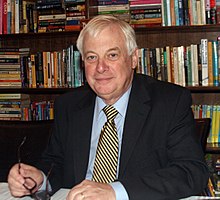OSS WORLD FACTBOOK
PERSON OF IMPORT: MAO XINYU

Mao in uniform in front of the Red Palace; C. 1997
Legal Name: 毛新宇 (Máo Xīnyǔ)PERSON OF IMPORT: MAO XINYU

Mao in uniform in front of the Red Palace; C. 1997
English Name: Mao Xinyu
Nicknames: Bǐ Gǎnmào (Tr: Big Mao), Öökh ezen khaan (Tr: Fat Emperor)
Birthplace: Changchun
Date of Birth: 17 January, 1970 (27)
Position: State Chairman of the Manchurian Soviet Republic, President of the Committee on Maoism,
Achievements of Note: Being the Red Emperor, Holding the World Record of Consumed Dumplings, Being a Major in the People's Revolutionary Army
History:
Born in 1970, he was the first and only son of Mao Anqing, and a blessing to his father. Using his newfound son as leverage, Anqing managed to depose his brother and de facto established a hereditary Emperorship of the Maoist line in 1980, when Xinyu was 10. Xinyu, raised in the relatively luxury of a Mao, found the newfound wealth inherent to the Imperial Prince of Red China to be intoxicating. While pushed into the People's Revolutionary Army (PRA) by his father, he preferred to live his penthouse/harem in Changchun. Anqing, though late in his years, grew tired of his son's debauchery, and exiled him to the Inner Mongolian Provinces to act with his favourite axeman Zhao Wei, and learn the ways of a proper Mao.
Wei, not being entirely stupid, did not treat Xinyu as harshly as his father suspected. Quickly promoted to the rank of Major, Xinyu simply watched as Wei did most of the work that he was required to do. Appreciative, Xinyu actually (and surprisingly) started to do some of the work that he was suppose to do, and the two worked well together. Xinyu would return from his exile in 1995 at the will of his ailing father, but his time in Inner Mongolia changed him. A hard and cruel (some whisper unstable) man underneath his plushy, jovial exterior, his pogroms against the Mongolians earned him the nickname Öökh khuntaij (Tr: Fat Prince) within said provinces, though ones that were found saying that name would soon disappear.
When his father passed away in 1996, Xinyu seized control of the nation with a firm grip. Headed by his right hand, Wei, he thoroughly purged any detractors to his rule and established himself as untouchable within the entire system of governance. Known for his lust for land, women, dumplings, and extravagant show trials, purges by his axemen are a weapon used by those within the Red Court against one another. His one major flaw is his utter disregard of the lives of any but a few of his closest favourites, leading the Red Court to (sometimes quite openly) assassinate and purge one another in a brutal clawing for power under the Maoist Light.
Last edited:








